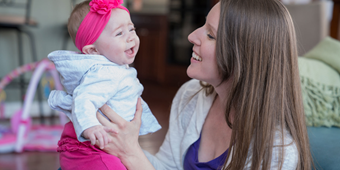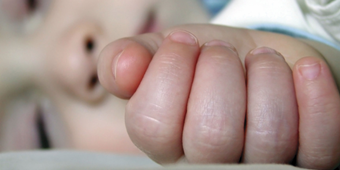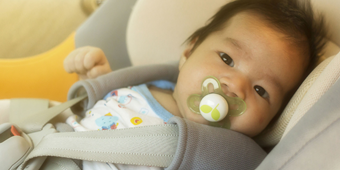Is Your Baby Ready for Solid Foods?
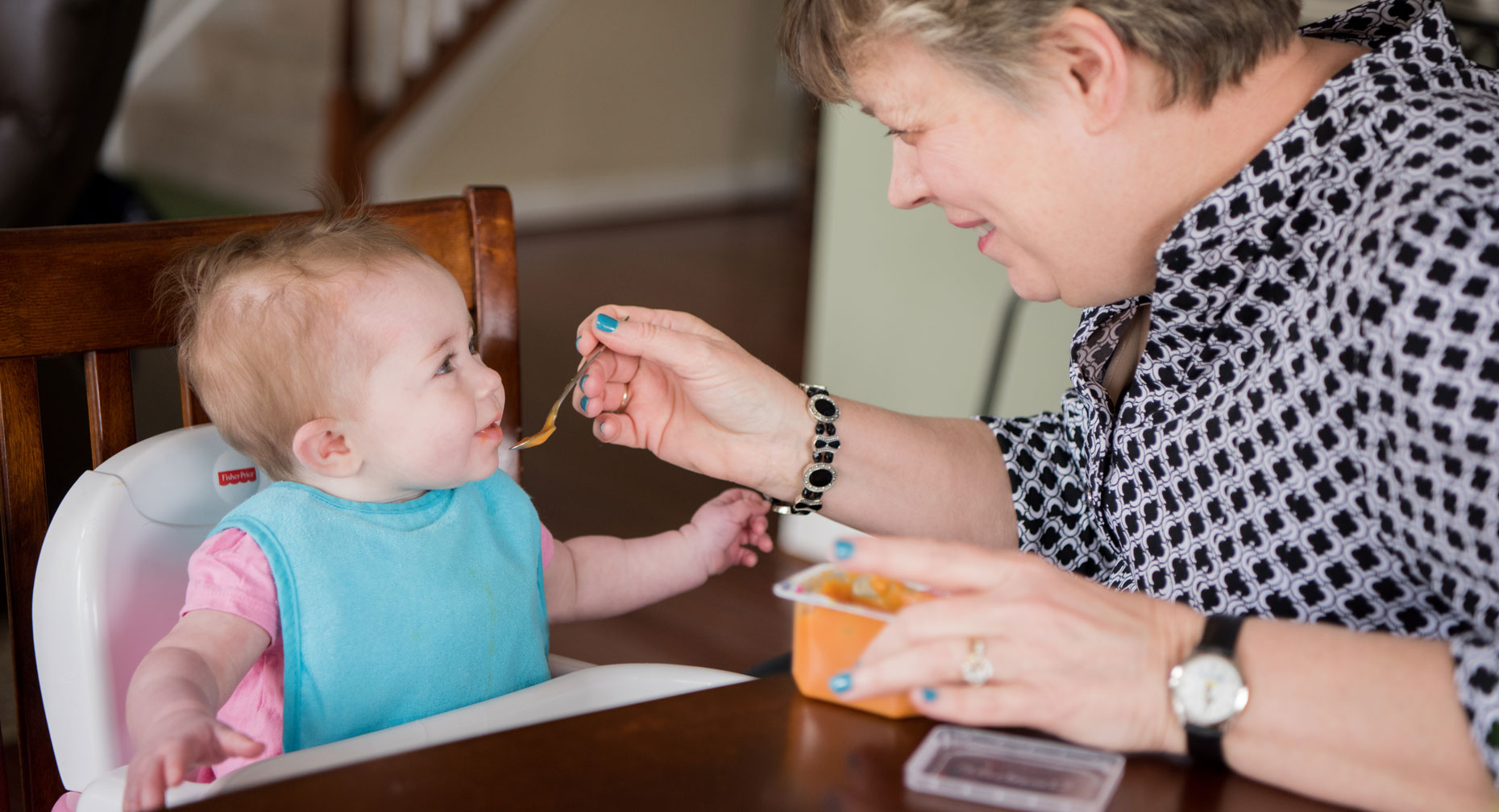
Answer a few questions and we'll provide you with a list of primary care providers that best fit your needs.
At every meal, your baby watches you eat with wide eyes and may even try to grab some food for herself. She is clearly intrigued by the whole eating process. But is it time for her to start eating solid foods?
When Should You Start Solids?
Your baby may be ready to start eating solid foods when she has doubled her birthweight, around four to six months old. The American Academy of Pediatrics recommends exclusive breastfeeding until around six months, then adding solids gradually from six to 12 months.
You’ll know your baby is ready to start solids when she:
- Holds her head up. Does she sit in a high chair or infant seat and have good head control?
- Shows an interest in food. Does she watch you eat and seem intrigued by the process of eating?
- Opens her mouth when food comes her way. Does she open her mouth when you put a spoon in front of her?
- Can move food from spoon to the back of her mouth to swallow. Or, does she push it out with her tongue? If so, she may not be ready.
Your baby may be ready to start eating solid foods when she has doubled her birthweight, around four to six months old.
What Food Should You Give Your Baby?
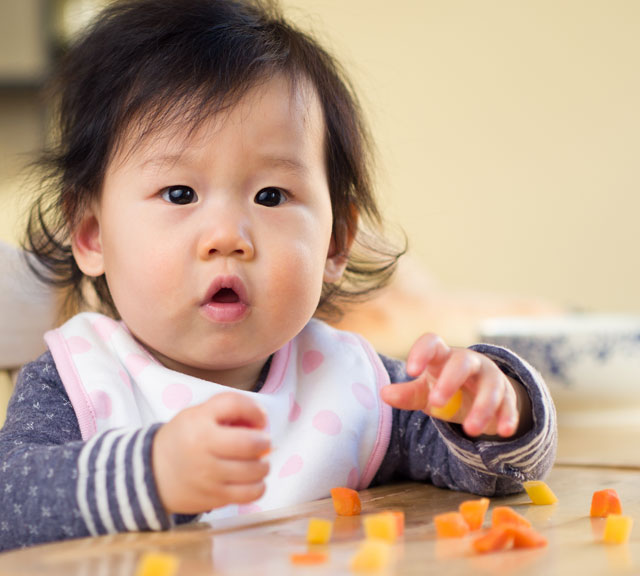
Many moms choose to start their baby on a baby cereal (rice, oatmeal or barley) mixed with breast milk or formula. The American Academy of Pediatrics advises that you can start with any single-ingredient food – cereal, fruit, vegetable or meat.
Begin with small amounts: a teaspoon, moving up to a tablespoon. Your baby is used to the thin consistency of breast milk or formula, so keep the new food thin and gradually make it thicker as your baby grows used to eating.
Many pediatricians recommend feeding your baby vegetables before fruit. Their thinking: Your baby may not like vegetables if he tastes the sweetness of fruit first. However, babies are born loving sweets, so waiting on fruit will probably not make a difference in their taste preferences.
Babies who are exclusively breastfed may benefit from eating baby foods with meat early on, since their iron stores start dropping around six months old.
Your baby doesn’t need water if she is getting enough breast milk or formula. However, you can start getting her used to drinking water and give her little amounts at a time. Wait until after a year to introduce juice, and then only about 4 ounces of 100 percent fruit juice per day.
A word of warning: When your baby begins to eat, his dirty diapers will change in consistency and smell – and not for the better. But don’t worry: The fun of introducing your baby to new foods outweighs this natural side effect.
What About Common Allergens?
When you start a new food, wait three to five days before introducing another food, to make sure that your baby doesn’t have a bad reaction to it.
Pediatricians used to recommend waiting to give your baby foods that are common allergens (peanuts, eggs, etc.) until they were older. Recent research shows that babies may have a higher risk of allergies if they wait. Now, doctors encourage starting these foods between ages 4 to 6 months, unless your baby already has a known allergy. Talk with your doctor if you have questions.
However, in your child’s first year of life, do not feed him honey or foods that can be easily choked on, such as hot dogs, peanuts, grapes, raisins or popcorn.
How Should You Feed Your Baby?
Don’t be pushy about starting your baby on solid foods. If your baby starts to cry or pushes food out with his tongue, he may not be ready to start. Wait a week or two and try again. There is no hurry.
When he is ready to start, be sure to set good mealtime habits with your baby. He needs to grow used to the eating process – sitting up, eating from a spoon, taking a break between bites and stopping when full. Encourage meals as a family – this is an important tradition and habit, confirmed by research. It’s healthy for babies (children and adults, too) to eat meals together as a family.
Answer a few questions and we'll provide you with a list of primary care providers that best fit your needs.
Source: healthychildren.org (American Academy of Pediatrics)


